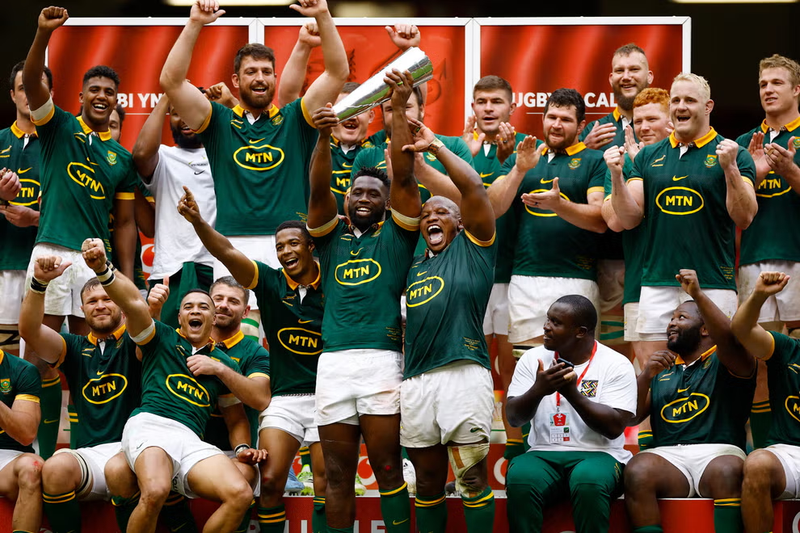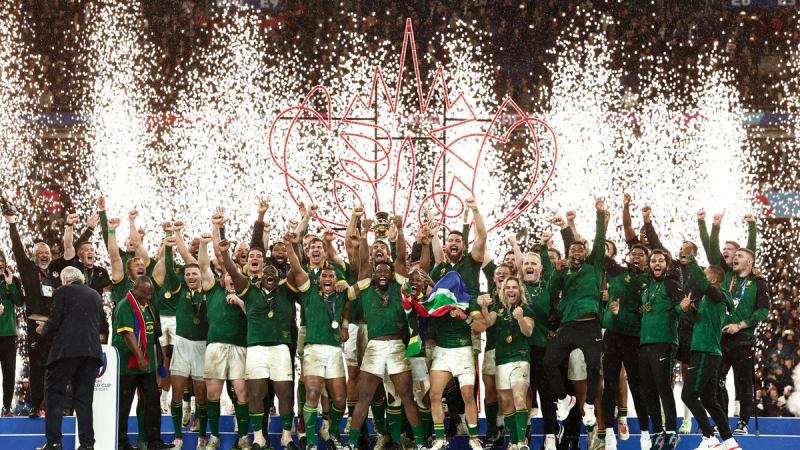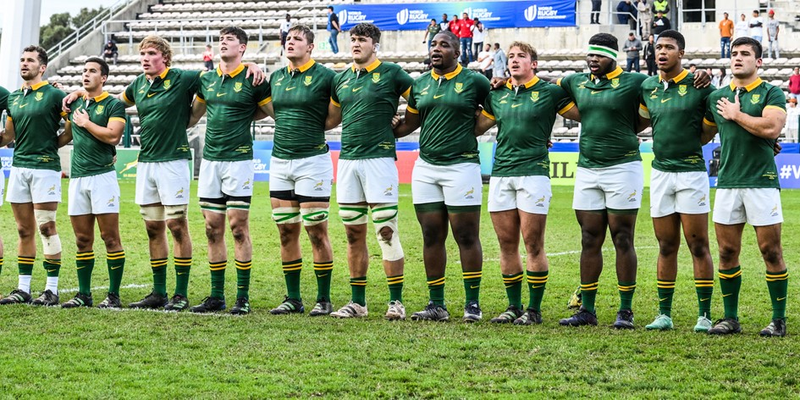The South Africa National Rugby Union Team, affectionately known as the Springboks, boasts a storied history of triumphs, challenges, and moments of glory on the international stage. From its humble beginnings to its ascension as world champions, the journey of the Springboks is a testament to resilience, determination, and the unyielding spirit of South African rugby. In this article, we delve into the captivating story of the South Africa National Rugby Union Team, tracing its rise to prominence and its enduring legacy in the world of rugby.

Foundations of South African Rugby:
The roots of South African rugby can be traced back to the late 19th century when the sport was introduced to the country by British settlers. Rugby quickly gained popularity, becoming an integral part of South Africa's sporting culture and identity.
The formation of the South African Rugby Union (SARU) in 1889 marked a significant milestone in the development of the sport, providing a centralized governing body responsible for organizing domestic competitions and overseeing the national team.
The Springboks played their first international match in 1891, marking the beginning of a journey that would see them become one of the most formidable teams in world rugby.
Early Successes and Challenges:
In the early decades of the 20th century, the Springboks enjoyed considerable success on the international stage, winning several matches against touring teams from Britain and Australia. However, it was not until the 1930s that South Africa truly emerged as a rugby powerhouse.
Under the leadership of legendary captain Danie Craven, the Springboks embarked on a series of successful tours to Europe, cementing their reputation as one of the world's top rugby nations.
Despite their on-field success, the Springboks faced significant challenges off the field, particularly during the apartheid era. The racially segregated policies of the South African government led to the exclusion of non-white players from the national team, resulting in international isolation and condemnation from the global rugby community.
A New Era of Unity and Triumph:
The end of apartheid in the early 1990s marked a new era of unity and transformation for South African rugby. Led by iconic figure Nelson Mandela, the country embarked on a journey of reconciliation and inclusivity, paving the way for the Springboks' return to the international stage.
In 1995, South Africa hosted the Rugby World Cup, marking a historic moment for the nation and its rugby team. Against the backdrop of a newly democratic South Africa, the Springboks, under the leadership of captain Francois Pienaar and coach Kitch Christie, captured the hearts of the nation by winning the tournament, defeating New Zealand in a memorable final.
The victory had a profound impact on the country, uniting South Africans of all backgrounds and symbolizing the triumph of hope and reconciliation over adversity.
Continued Success and Achievement:
In the years following their triumph in 1995, the Springboks continued to enjoy success on the international stage, winning the Rugby World Cup for a second time in 2007 under the guidance of coach Jake White.
Led by inspirational captains such as John Smit and Siya Kolisi, the Springboks have remained a dominant force in world rugby, showcasing their trademark physicality, skill, and determination on the field.
In 2019, the Springboks once again reached the pinnacle of the sport, winning their third Rugby World Cup title in Japan under the stewardship of coach Rassie Erasmus. The victory was a testament to the team's resilience and unity, as well as its unwavering commitment to excellence.
Legacy and Impact:
The rise of the South Africa National Rugby Union Team is more than just a story of sporting success; it is a reflection of the resilience, diversity, and spirit of the South African people.
The Springboks have transcended the boundaries of sport to become a symbol of hope, unity, and reconciliation in a country that has faced its share of challenges and triumphs.
Through their achievements on the field and their unwavering commitment to excellence, the Springboks have inspired generations of South Africans to dream big, work hard, and strive for greatness in all aspects of life.
As they continue to write new chapters in their storied history, the Springboks remain a source of pride and inspiration for millions of rugby fans around the world, embodying the values of courage, resilience, and camaraderie that define the beautiful game of rugby.

Conclusion:
The journey of the South Africa National Rugby Union Team from humble beginnings to world champions is a testament to the enduring power of sport to unite, inspire, and transform lives.
From the early days of adversity to the heights of triumph and glory, the Springboks have exemplified the spirit of resilience, determination, and unity that defines South African rugby.
As they continue to strive for excellence on the international stage, the Springboks serve as a beacon of hope and inspiration for all who believe in the power of sport to change the world.
